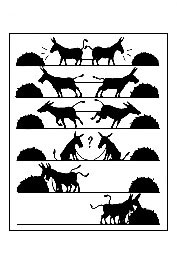About Dr Judith Morrison
Judith has directed her energies toward developing this course because of what she sees as a glaring need in adult education programs for training that gives people a relatively well-informed position on sustainability, and therefore some degree of authority to speak about it in their workplaces and in other forums. It is highly significant that ordinary men and women can attain a modest qualification in this area of learning. People from all walks of life now have to become personally engaged with ideas about sustainable development.
Judith has a longstanding involvement with cross-sectoral and cross-cultural negotiations between governments, resource developers and Indigenous communities, particularly in relation to large-scale mining projects in Australia and Papua New Guinea.
Judith was awarded her PhD through Murdoch University in Western Australia. She was appointed Honorary Research Associate by the Institute for Sustainability and Technology Policy at Murdoch University in order promote a wider interest in training about sustainability amongst educators and the general public.
Institute For Sustainability and Technology Policy, Murdoch University
Recent Publications
Conflict, Sustainability and the Role of the Scholar-Reporter: A guide for compiling or assessing reports on decision-making processes dealing with social conflict and contentious sustainability issues, VDM Verlag Dr. Muller Aktiengesellschaft & Co. KG, Saarbrucken Germany
http://www.amazon.com/Conflict-Sustainability-Role-Scholar-Reporter/dp/3639139356
Independent scholarly reporting about conflict interventions: negotiating aboriginal native title in South Australia. PhD thesis (2007) Research Repository, Murdoch University Library
http://researchrepository.murdoch.edu.au/210/
Uniting the Voices: Independent Review of Aboriginal Legal Rights Movement Native Title Unit’s Facilitation of Decision Making by South Australian Native Title Management Committees, July-Oct 2000. (2001) Native Title Unit, Aboriginal Legal Rights Movement, Adelaide.
In 2000, as part of her PhD research project, Judith participated in, and reported on, a four-month consultative process.
Representatives from all native title claimant groups throughout South Australia were invited to consult and consider negotiating with the South Australian Government, the South Australian Chamber of Mines and Energy, and the South Australian Farmers Federation.
The goal was to assist the claimant communities make an informed decision as to whether they would participate in negotiations to bring about a statewide Indigenous Land Use Agreement. This would be the statewide strategy for bringing about determinations of native title.
Negotiated agreements would establish bases for more workable relationships between Aboriginal people and the settler population as well as more integrated and sustainable decision-making and problem-solving processes.
Claimant communities, represented in the consultations through their Native Title Representative Bodies, jointly expressed their willingness to proceed with the option to negotiate a settlement of native title as an alternative to having their individual claims processed through the National Native Title Tribunal and the Federal Court. These negotiations, which are ongoing, have to deal with a wide range of issues.
Negotiated Indigenous Land Use Agreements have to arrive at settlements that are more extensive than determinations of native title made through the formal judicial system, which is limited to a legal determination as to the existence of native title. Negotiated Indigenous Land Use Agreements seek to establish how native title will actually work in practice. Thus there are a range of potentially conflicting values and interests to do with cultural recognition, and the significance of and the use of land and other natural resources to be taken into account.
Critical attention will need to be given to the theoretical framework through which understandings are generated about the scale and the context of issues needing resolution.
Comparing Conflict Theories for Scoping Problems and Means for Their Resolution, Asia Pacific Mediation Conference Proceedings (2001) University of South Australia, Adelaide.
Mining and Sustainability – Ok Tedi Case Study, Sustainable Development Program, (2000) Institute for Sustainability and Technology Policy, Murdoch University, Murdoch, Western Australia http://www.sustainability.murdoch.edu.au/casestudies/Case_Studies_Asia/oktedi/oktedi.htm
Problem-Solving for a World of Difference - Resource Developments, Indigenous Interests in Land and Conflict Analysis, Murdoch University Electronic Journal of Law, Vol 6, No 1 (March, 1999) http://www.murdoch.edu.au/elaw/issues/v6n1/morrison61nf.html
Negotiation Processes Between Mining Corporations and Other Interested Groups in Papua New Guinea, Australian Conservation Foundation: 1997

